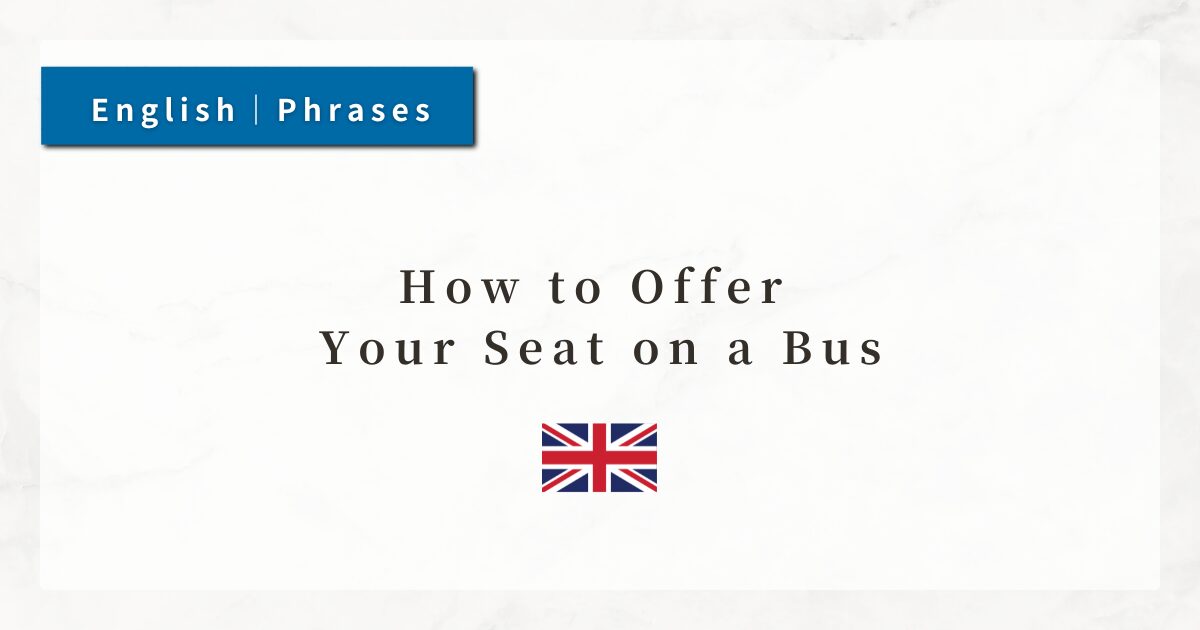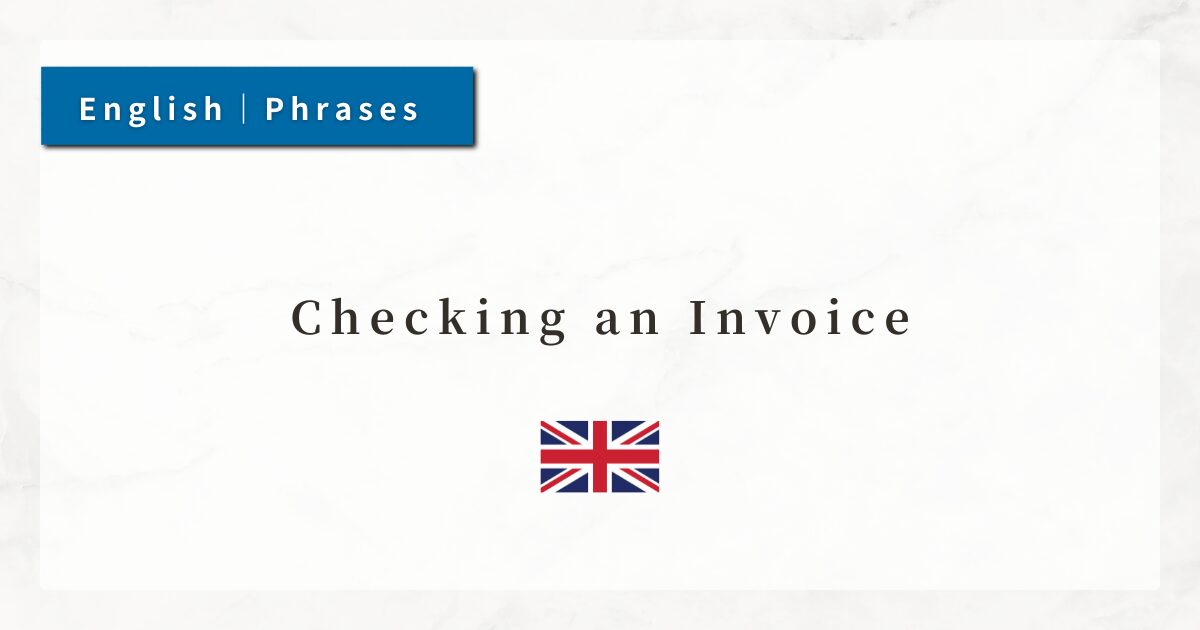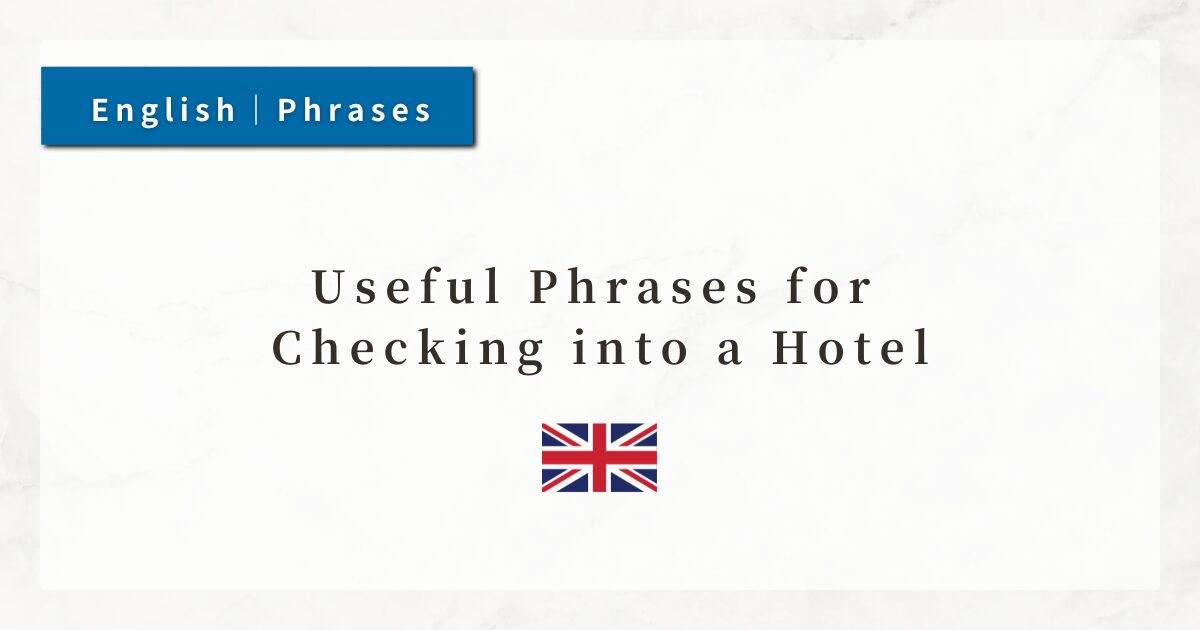#9 How to Offer Your Seat on a Bus|Polite English Expressions

When using public transportation such as buses or trains, I often see elderly people, pregnant women, people with small children, or those with physical disabilities.
In such situations, offering my seat in a kind manner creates a positive impression and helps me build rapport with local people.
In English-speaking countries as well, “consideration in public spaces” is highly valued, and offering one’s seat is regarded as a gesture of courtesy that transcends cultural boundaries.
In this lesson, I will explain in detail the English expressions used when offering a seat on a bus, along with important grammar points.
Dialogue

Excuse me, would you like to sit down?

Oh, thank you. That’s very kind of you.

Please, take my seat. I’m getting soon anyway.

I really appreciate it. It’s been a long day.

No problem at all. Take care.

Thank you. Have a nice day.
1. Polite Offers
The expression “Would you like to ~?” is a very polite way of making an offer or invitation while respecting the other person’s preference.
- Would you like to join us?
- Would you like to have a seat?
“Do you want to ~?” has a similar meaning but sounds more casual and may come across as overly friendly depending on the context.
In public settings, “Would you like to ~?” is safer and more appropriate.
2. Responding to Kindness
This phrase is often used to express gratitude in a polite way, meaning “Thank you for your kindness.”
- That’s very kind of you.
The structure is: “That’s + adjective + of + person” This pattern evaluates a person’s action or behavior.
3. Making Imperatives Polite: Please + Verb
The sentence “Take my seat.” is in the imperative form. By adding please at the beginning, the expression sounds more courteous.
In public places, using the form “please + verb” is recommended to keep a polite tone.
- You can take my seat if you like.
- Would you like my seat?
4. Near-Future with Present Continuous
This phrase means: “I’m getting off soon, so please take my seat.”
- I’m getting off soon anyway.
Here, anyway conveys the nuance of “don’t worry about it” when the other person hesitates to accept.
The key grammar point is the use of the present continuous (I am + verb-ing), which in English often refers not only to actions happening “now,” but also to planned near-future events.
- I’m getting off soon.
- I’m leaving in a minute.
- I’m meeting a friend later.
5. Standard Parting Expressions
“Have a nice day!” is a polite and common farewell phrase, frequently used in daily life.
The structure is: “Have + a + adjective + noun”
- Have a good evening.
- Have a great trip.
- Have fun!
This pattern is suitable for polite farewells and leaves a good impression. The natural response is “You too!”
Summary
- Would you like to sit down?
→ A polite way to offer a seat, suitable even with strangers. - That’s very kind of you.
→ A set phrase to show appreciation for someone’s kindness. - Please take my seat.
→ A clear and polite way to offer a seat. - I’m getting off soon anyway.
→ A considerate phrase to reassure someone who hesitates. - Have a nice day! / You too!
→ Perfect expressions to end the interaction on a positive note.






